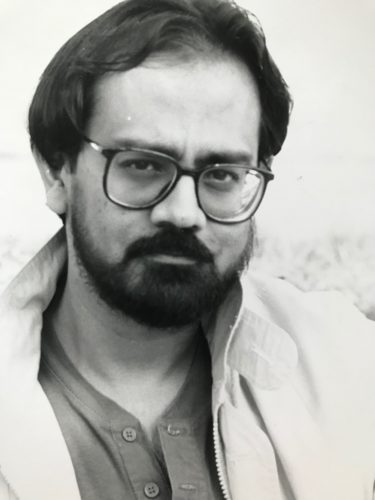
In exploring this theme, our intent was not to suggest a link between quantum physics and gender identity. However, we were curious about what we might learn from the evolution of knowledge around quantum mechanics, the study of subatomic particles and their behaviour, and how, at a conceptual level, that might also enhance our evolving understanding of gender identity.
Historically, binary categories have remained pervasive in our understanding of the universe. On the one hand, quantum physics shows us that particles can exist in multiple states simultaneously, seemingly in contradiction to the so-called classical “laws” of physics. On the other hand, as our understanding of gender identity evolves, we see that the binary male/female is also a false construct in that gender can perhaps be seen as a continuum and that individuals do not necessarily identify either as male or female and may even place their gender identity outside such a continuum.
In both contexts, the advances in our understanding based on research and experimentation challenge our existing notions of objective reality. In quantum physics, one of the concepts to emerge would suggest that the mere act of observation can change the behaviour of particles, lending a subjective element to their study that is dependent on the observer. Similarly, the evolution of our understanding of gender identity challenges the male/female binary by recognizing that the intersections of a myriad of social and cultural constructs (beyond biological sex) influence the development and the expression of gender identity.
We asked writers, artists, scientists, poets, activists and other imaginative individuals, however they identify on or off the gender continuum, to share their vision, insights, essays and stories on this theme with us. The response is a brilliant unfolding/infolding/interfolding.
Serai editor Claudia Itzkowich interviews Tiziano Cruz, an interdisciplinary Indigenous gay artist from the mountains of northern Argentina, who strips down to his skin to expose a colonial culture fixated on whiteness that erases Indigenous cultures and renders non-white bodies invisible.
Poet and performance artist Fan Wu shares voice notes with Sharlene Bamboat about her film, If From Every Tongue It Drips, whose characters – two queer women – muse on the words of physicist Karen Barad, in sensual meditations on quantum entanglement and gender identity in daily life.
Engineer and poetic thinker Iftekhar Ahmed riffs off a poem that resonated deeply for him in witnessing and supporting his son Mani, a trans person, along his journey of affirmation of his true self.
Visual artist Patrick Visentin “explores the interstices and interplay of fact and fiction” in his scanned images of small sculptures he creates. His “biofictions” inspired by the natural and scientific worlds “reach beyond what can be measured and described to materialize the unknown improbable fantastical side of life… as only art can.”
Each year in the month of June, memories of the late Kalpesh Oza, artist-activist, microbiologist and former member of Montréal Serai, come flooding back to me and other friends in Serai, marking his passing in 1995. We include a “reprint” of the transcription of an oral presentation Kalpesh gave at the Desh Pardesh festival/conference in Toronto in 1993, which continues to inspire and move us to this day.
In “Playing in the Quantum Field,” Katharine Beeman shares two intriguing poems inspired by our theme.
Louise Carson’s poems take us on an inward voyage, “in which I am no longer the centre of the universe.”
In “A timely and gripping call for change,” Veena Gokhale reviews the latest oeuvre by Gabor Maté, The Myth of Normal, exploring mental health in a sick society.
We complete the issue with a piece I wrote to commemorate Rana Bose, which was originally published in the Duniya Journal shortly after his death and has been slightly adapted here with photos and a videoclip of Rana performing Mumbai, Bloody Mumbai.
We would like to close with a call for artists of all kinds – writers, painters, storytellers, filmmakers, poets, musicians, dancers, you name it – to apply to receive the Montréal Serai Artist in Residence RANA BOSE MEMORIAL GRANT.
Submission deadline: September 30.








